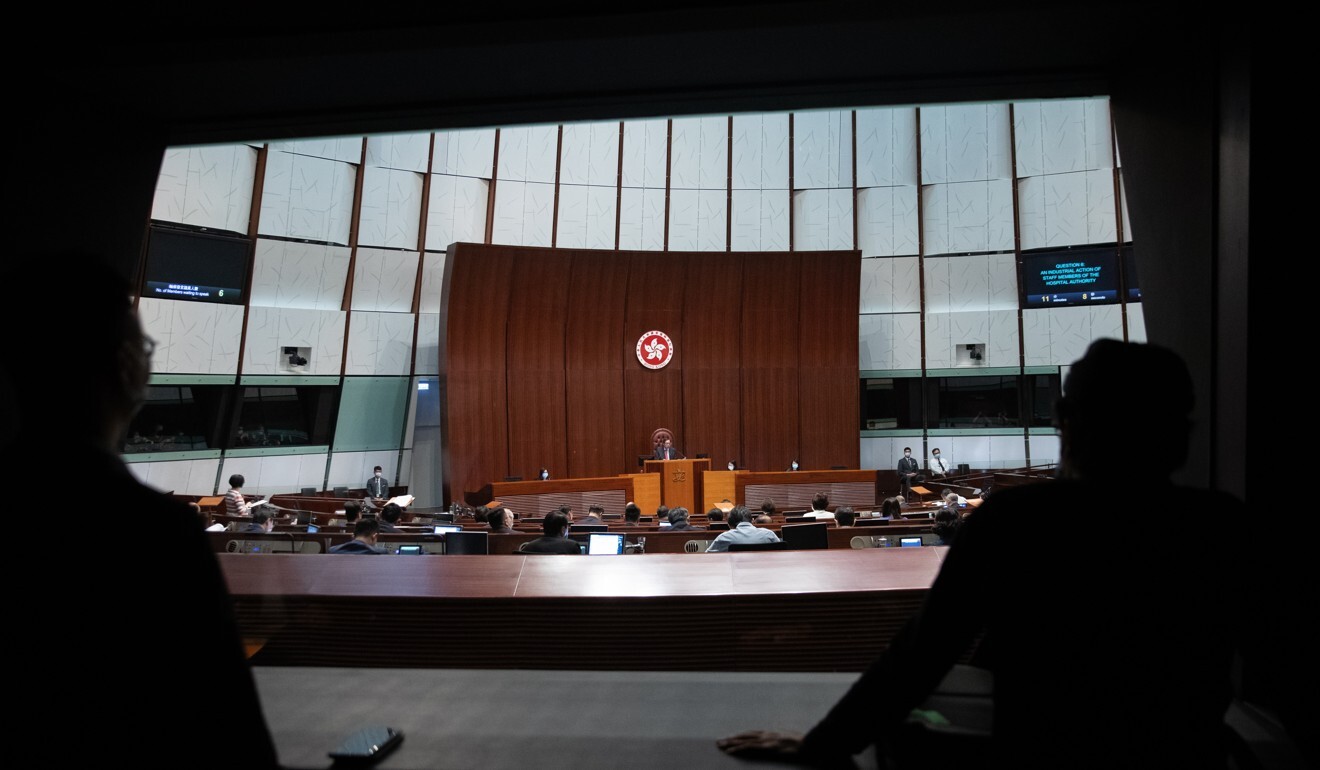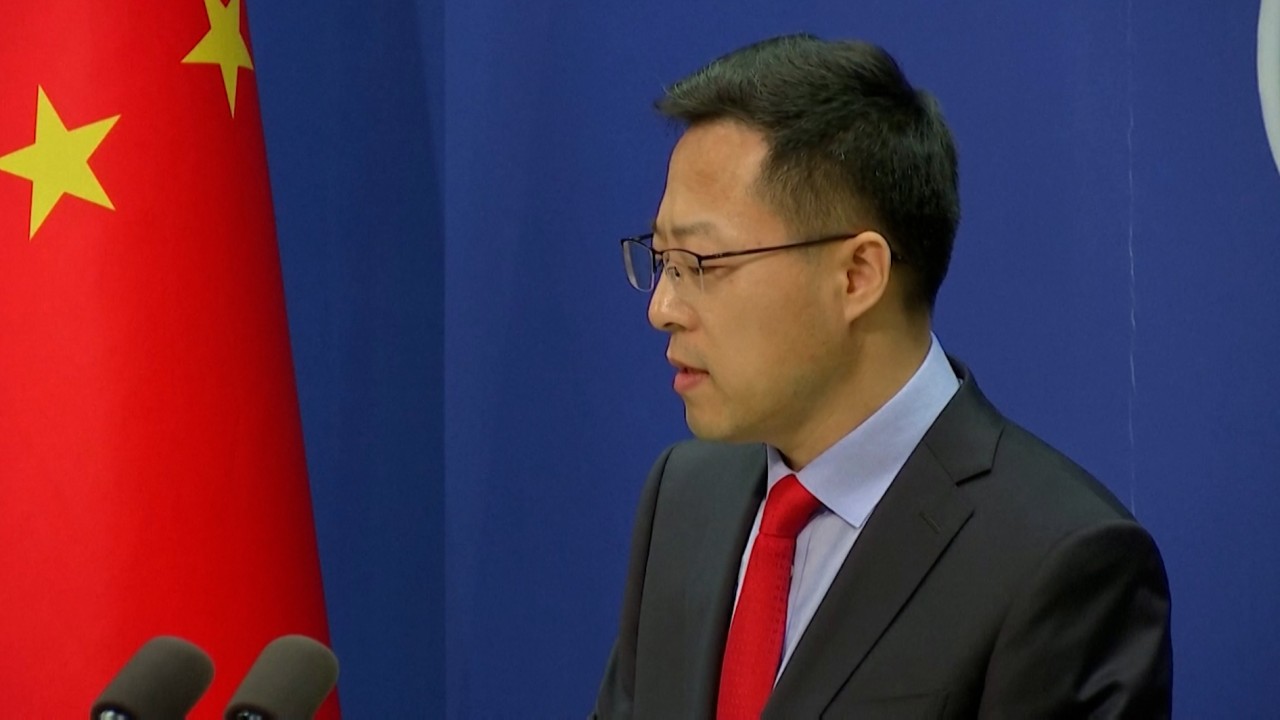
China’s extralegal detentions undermine Xi’s rule of law ambitions
- Promoting the rule of law is crucial to President Xi Jinping’s ambitions to build China into “a modern socialist country”
- But blatant attempts to stifle dissent from outspoken activists, lawyers, and academics show just how far China still has to go

Back in 2015, the Chinese government released an ambitious five-year plan with the overarching aim to basically achieve a law-based government administration by 2020, characterised by “scientifically-conceived functions, legally defined authority and responsibility, strict application of law, fairness and transparency, honesty and high efficiency, adhering to the law and strong credibility”.
Now that the year 2020 is coming to an end, the goal has apparently been pushed back to 2035 when “the goal of building a country, government, and society based upon the rule of law shall be basically achieved”, according to a landmark document released by the Chinese leadership after a key meeting in late October.
This shows China has a long way to go before Chinese-style rule of law is firmly established, because of deep-rooted structural issues, weak lawmaking and a weak judicial system as well as blatant use of extralegal means to stifle dissent.
But promoting the “rule of law” is crucial to President Xi Jinping’s ambitions to build China into “a modern socialist country” by 2035.
On Monday and Tuesday, Xi chaired what the state media called the first national conference on work related to overall law-based governance to discuss “the socialist rule of law with Chinese characteristics” and promised to promote the modernisation of China’s governance and capacity in line with the law. The importance of the meeting was underlined by the attendance of all seven members of the party’s Politburo Standing Committee, of which Xi is the General Secretary.
In his speech, Xi listed 11 requirements for strengthening the socialist rule of law, including party leadership; a people-centred approach; sticking to the socialist path; a law-based approach in handling economic and social issues: adherence to the constitution; coordinated progress in law-based governance, law-based exercise of power, and law-based government administration; sound lawmaking, strict law enforcement, impartial administration of justice, and observance of law by everyone; promoting rule of law at home and in matters involving overseas parties; a quality team of professionals; and an emphasis on senior officials to abide by the law.
While few of the elements are new, Xi’s remarks on speeding up the strategic blueprint on legal matters involving overseas parties have raised eyebrows among overseas analysts.
As he said in the context of “demanding more efforts to better safeguard national sovereignty, security, and developments, some analysts have speculated Beijing could soon consider legislation against Taiwan, after Beijing’s recent resolution to allow Hong Kong to disqualify four opposition lawmakers.

Following the meeting, the state media immediately hailed the 11 slogan-like requirements as forming Xi Jinping Thought on the Rule of Law and serving as the fundamental guidelines for law-based governance in China.
This is the latest addition to the ever expanding umbrella of Xi Jinping Thought on Socialism with Chinese Characteristics for a New Era, which was written in the party’s and the state’s constitution in 2017 and 2018. Since then, Xi Jinping Thought has covered diplomacy, economics, the armed forces, and ecological civilisation, signalling Xi’s growing political authority in the Communist Party.
As the leadership is preparing to mark the centenary of the party next year and the party’s 20th congress in 2022 when Xi is widely expected to seek another five-year term, Xi’s political standing will be further elevated with his thought expanded to cover more subjects.
But enhancing “the rule of law” is paramount to consolidate Xi’s political legacy, bolster the party’s legitimate power, and institutionalise the party leadership in the country.
Chinese leaders and the state media make liberal use of the phrase ‘rule of law’, but it is starkly different from the notion in Western countries where the law is aimed at preventing the arbitrary use of power, securing judicial independence and ensuring equality of all citizens before the law.
In China, the “rule of law” is more like “rule by law”. As Xi put it this week, the law-based governance is aimed to “guarantee the effective implementation of the party’s line, principles and policies”, hence Xi’s insistence on upholding party leadership over law-based governance.
Long gone are the days in the late 1970s and 1980s when there were still debates behind closed doors over the superiority of the party or the law as the leaders then tried to improve the legal framework to ensure the country would not suffer again from the arbitrary power of an individual leader like Mao Zedong, who launched the Cultural Revolution and plunged the country into chaos.
Since Xi came to power in 2012, he has completely changed the way the country is governed and has publicly proclaimed that the party controls everything, including the law, in the country.
It is no coincidence that on Sunday, the party’s leading journal Qiushi published an excerpt from a speech Xi gave on law-based governance in February in which he said more efforts should be made to turn the party’s propositions into laws and regulations.
Among other things, he said the country should build a legal team of professionals to be loyal to the party, the state, the people and the law.

00:45
Beijing says ‘Five Eyes’ allies risk having ‘eyes poked out’ for meddling in Hong Kong affairs
Faced with complex challenges including a slowing economy at home and an increasingly hostile international environment worsened by the rivalry with the United States, Xi’s push for law-based governance will no doubt tighten the party’s control and enhance social stability through better addressing public grievances and responding to public opinion.
Over the past few days, state media played up Xi’s remarks that fairness and justice are the lifeline of the rule of law and that efforts should be made to enable people to see that justice is served in every judicial case.
“Just one wrongly adjudicated case can ruin the reputation accumulated through the fair trials of 99 cases,” Xinhua quoted Xi as saying.
But in reality, the authorities still resort to extralegal detentions and other coercive measures to deal with outspoken activists, lawyers, and academics. Such cases can sap the confidence of people, at both home and abroad, in Beijing’s promise to promote the rule of law.
Wang Xiangwei is the former editor-in-chief of the South China Morning Post. He is now based in Beijing as editorial adviser to the paper